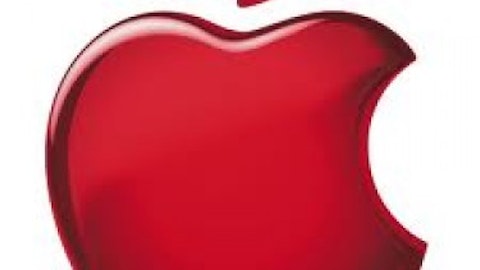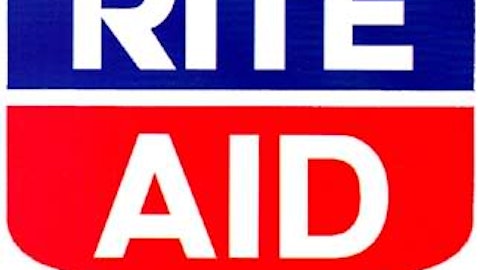Apple Inc. (NASDAQ:AAPL) has always prided itself on innovation. The company has long taken the approach of out innovating itself, allowing its new products to make its old ones obsolete.
But if the rumors about Apple’s new iRadio are true, the company is backtracking to some extent. Rather than embrace streaming music on demand, Apple seems to be planning to use its streaming music service to keep an old business model alive.
Apple’s iRadio could be launched next week
Various news outlets have reported that Apple is planning to launch its streaming music radio service as early as next week, at the company’s WWDC. Bloomberg reports that the service will function like Pandora (NYSE:P), allowing listeners to streaming ad-supported music based on a relevant artist or track.
Obviously, this poses a threat to Pandora’s business, as its users could opt to defect en masse to Apple’s rival service. Shares of Pandora dropped precipitously on Monday, and if Apple Inc. (NASDAQ:AAPL)’s radio service draws listeners away from Pandora in meaningful numbers, dark days could lay ahead for the Internet radio giant.
Google (NASDAQ:GOOG) and Microsoft have a different take
Rather than take the Pandora route, and offer pure streaming Internet radio, both Google and Microsoft have opted to offer services similar in functionality to Spotify — that is to say, on demand streaming music.
That raises the question: why? Why did Apple opt to follow Pandora’s pure radio format, while its competitors have embraced a Spotify-like subscription service business?
The answer is not terribly complex. Apple Inc. (NASDAQ:AAPL) is attempting to protect an established business: its iTunes music empire. Its competitors want the opposite.
According to Bloomberg, Apple’s radio service will be tightly integrated with iTunes, allowing users to easily purchase and download songs that they hear. In a way, it should serve as an extension to Apple Inc. (NASDAQ:AAPL)’s iTunes business, not a replacement.
iTunes music works to keep customers locked into Apple’s ecosystem
Apple bulls have long argued for the power of the company’s ecosystem. That is, Apple products have certain characteristics that make buyers more inclined to stick with Apple products over rival hardware manufacturers.
A big component of this ecosystem is iTunes, and more specifically, large iTunes libraries. While music purchased on iTunes can be taken to other devices, it’s easier just to stick with Apple Inc. (NASDAQ:AAPL).
Consequently, Apple has a vested, long-term strategic interest in keeping people happy iTunes customers — the more songs they buy, the less likely it is that they’ll consider leaving.
Streaming, on demand music services weaken this component of Apple’s ecosystem. If a customer is shelling out $10 a month for a Spotify subscription, it’s unlikely that they’ll purchase music, from iTunes or anywhere else.
Google Music could be the biggest threat
When Google first unveiled its music service, the big draw was the ability to upload mp3s. Any gmail user can upload 20,000 mp3 files to the cloud and access them from anywhere.
As few people likely own more than 20,000 songs, this makes dumping iTunes (and by extension iOS) a much more pain-free process. If an iPhone user wants to make the switch to a device running Google’s Android, they can simply upload their songs to Google’s servers and get them on their new Android device.
Google pushed it even further when, at the company’s I/O conference, it unveiled All Access, a subscription service add-on to Google Music that gives the application on demand functionality.
Now, All Access is said to be coming soon to iOS, meaning that Google’s effort to wean people off iTunes will soon be front and center for all iPhone users to experience.
Streaming music as a threat to Apple
Apple Inc. (NASDAQ:AAPL) wants people to keep buying their music from iTunes. Not because the company makes a lot of money selling music (they don’t), but rather, because it helps keep customers loyal.
Thus, unlike its competitors, Apple Inc. (NASDAQ:AAPL) has reportedly chosen to copy Pandora, rather than offer a streaming music subscription service like Google.
Ultimately, the rise of on demand music services is a threat to the viability of Apple’s ecosystem. Those that buy into Apple based on the strength of that ecosystem should keep a close eye on the success (or failure) of these services.
Joe Kurtz has no position in any stocks mentioned. The Motley Fool recommends Apple and Google. The Motley Fool owns shares of Apple and Google.
The article Apple’s Trying to Keep an Old Business Model Alive originally appeared on Fool.com.
Copyright © 1995 – 2013 The Motley Fool, LLC. All rights reserved. The Motley Fool has a disclosure policy.






